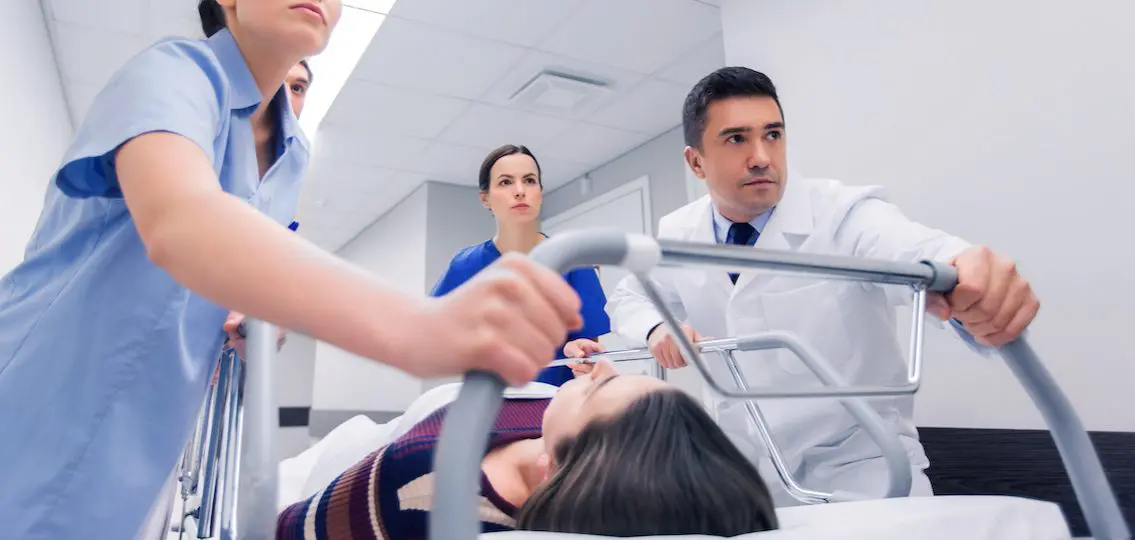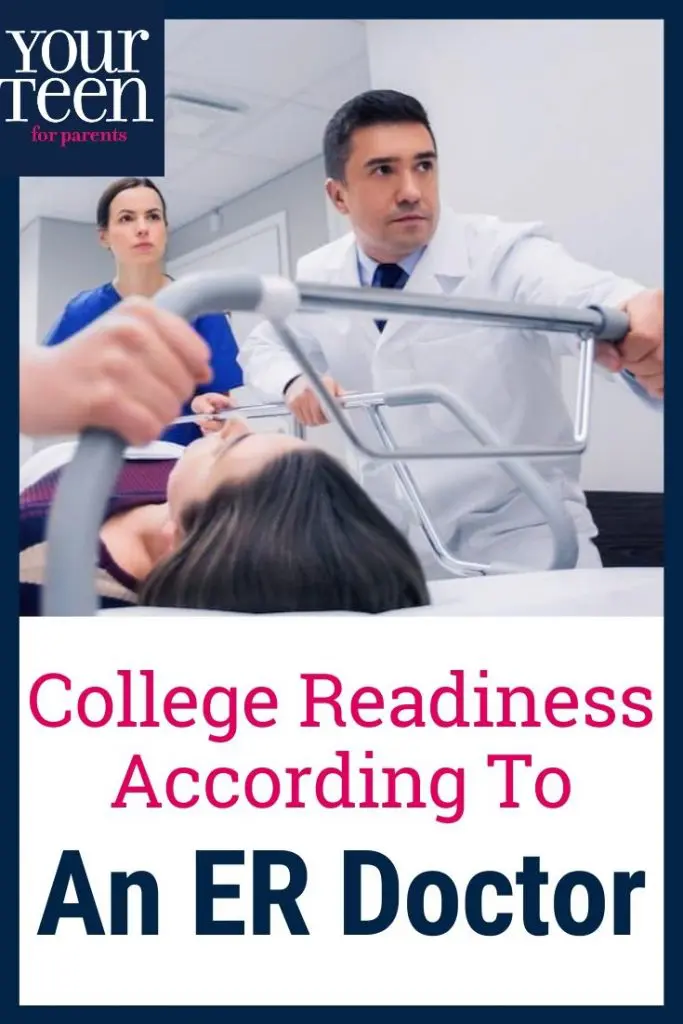Google “images of college students” and you’ll encounter an array of photos featuring cheerful young people holding books, engaging in discussions, and lounging on lush green campus lawns. As an emergency room physician, Dr. Louis M. Profeta has seen a very different picture of college students. Having spent over 25 years in the ER, he’s performed rape exams, pumped veins full of Narcan in response to drug overdoses, and worst of all, looked at the clock and pronounced time of death.
Taking His Message Straight to the Source
After too many days spent breaking horrible news to parents, Profeta decided to go to the source. He visits college campuses that are “brave enough to have him” and answers uncomfortable questions about drugs and alcohol, sexual assault, hazing, and a whole host of complex topics. He’s also written several widely-shared essays, including, “A Very Dangerous Place for a Child is College.”
When he speaks to college students he favors an open and honest approach. He tells them he’s there as a doctor and a father who almost lost a child to cancer. He tells them that he wants them to live a long life and experience the joy of holding their own child in their arms one day. In return, the students are candid with him.
It was the questions he got when adults were out of the room that made him feel many of these students have absolutely no business leaving home and going away to college.
Here’s a sampling of what Profeta has heard:
- “Can you really soak a tampon in alcohol and get drunk?”
- “Is cough syrup OK to mix with vodka?”
- “Can’t you just strap a backpack to them to keep them from rolling over so they don’t choke on their own vomit?”
- “What if you know your roommate is using heroin … should I tell their parents?”
- “How do I tell if the ‘bars’ I bought online are not fentanyl?”
Based on his experiences, this ER doctor has the following thoughts for parents as they contemplate their children’s futures.
Dr. Profeta’s Advice About College Readiness:
1. College is not a place for children — it’s for young adults.
Profeta is very clear about what college is and is not. First and foremost, he notes that college is for men and women, not children. It’s a place to explore career options, expose oneself to diversity of thought. It’s a place to hone social and life skills, and make contacts that might translate into future business opportunities, friendships, or life partnerships.
College is not summer camp, and it is NOT a surrogate parent. Profeta suggests the early discussions around college are all wrong. Instead of worrying about their child’s aptitude for college, parents should step back and consider, “Is my child emotionally and mentally ready to go away to college?”
Remember the question from a college student about “bars” containing fentanyl? Profeta explained that “bars” are slang for bar-shaped Xanax, a prescription drug used to treat anxiety. When students attempt to purchase bars online or on the street, they may end up with drugs that contain fentanyl, a cheaper ingredient that also happens to be an opioid 50 times stronger than heroin. Ingesting such drugs can lead to convulsions, respiratory arrest, and fatal overdose—Profeta has seen it all.
2. Maturity will serve college students more than a high SAT score.
Thankfully, not every emergency room visit ends with horrible news. But Profeta has another concern regarding his patients. He’s seen college-age patients who won’t look him in the eye and who defer to their parents to answer questions about their health. He’s concerned about some college students’ level of maturity and ability to be self-sufficient in a place that requires both.
“Give me one year of age over a hundred extra points on the SAT,” says Profeta, suggesting parents of teens ask themselves the following questions:
- Does my child have the strength of character to say no?
- Are they independent—really?
- Would I feel comfortable leaving my house and letting them fend for themselves?
- Could I go weeks without talking to them, secure in the knowledge they are fine?
If the answer to these questions is no, Profeta suggests postponing going away to college. And if a child does enroll and then reaches out to their parents admitting they weren’t ready, welcome them home.
Profeta also advises that parents talk to their children about good decision-making and the need for more self-sufficiency from a place of love. He tells college students the most devastating thing that could happen to their parents is the loss of a child. He should know—he’s had to deliver that heart-breaking news hundreds of times.
3. There is nothing wrong with taking a longer path to college.
For those students who aren’t ready for the traditional residential college experience right out of high school, Profeta advocates an arrays of alternatives. Get a job waiting tables or doing construction. Take classes locally. Engage in community service or environmental activism. The list goes on.
He adds this important reassurance for parents who are convinced that their child needs more education to succeed. “College will still be there. It is not a race to adulthood.” He knows about the comparison game among parents but he suggests ignoring it, understanding there are many paths to success.
The one path he doesn’t recommend taking. Don’t toss an immature student into an environment with a thousand temptations you never knew existed. There’s just too much at stake.





